Recent Blog Posts
Dealing with Creditors During the Bankruptcy Process
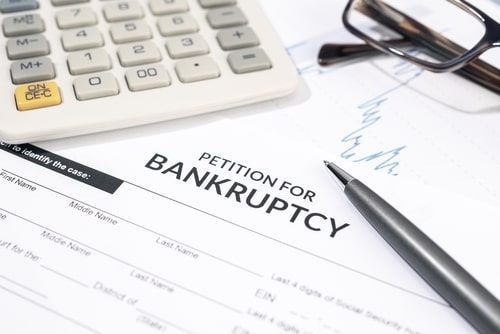 One of the most daunting aspects of facing financial hardship and considering bankruptcy is dealing with creditors. It is essential to understand your rights and the proper steps to take when communicating with creditors throughout the bankruptcy process. A Texas lawyer can help you effectively handle creditors as you go through your bankruptcy.
One of the most daunting aspects of facing financial hardship and considering bankruptcy is dealing with creditors. It is essential to understand your rights and the proper steps to take when communicating with creditors throughout the bankruptcy process. A Texas lawyer can help you effectively handle creditors as you go through your bankruptcy.
What is the Automatic Stay?
Once you file for bankruptcy in Texas, an automatic stay goes into effect. This legal protection prohibits creditors from continuing collection efforts, including phone calls, letters, wage garnishments, and lawsuits. The automatic stay provides a temporary reprieve, allowing you to focus on the bankruptcy process without the constant pressure from creditors.
Bankruptcy Fraud: Pitfalls to Avoid During Your Case
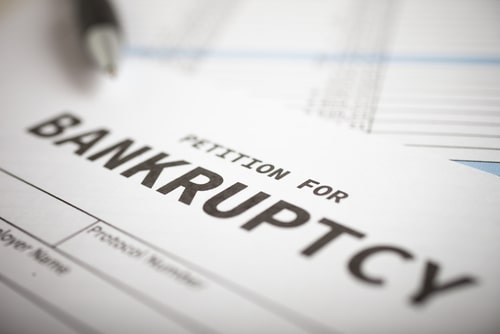 A bankruptcy filing can offer a new financial beginning to individuals overwhelmed by debt. Yet, the process can be complex, and inadvertent errors can have repercussions, such as accusations of bankruptcy fraud. A Texas lawyer can help you learn about the common pitfalls to avoid during your bankruptcy case.
A bankruptcy filing can offer a new financial beginning to individuals overwhelmed by debt. Yet, the process can be complex, and inadvertent errors can have repercussions, such as accusations of bankruptcy fraud. A Texas lawyer can help you learn about the common pitfalls to avoid during your bankruptcy case.
What Exactly is Bankruptcy Fraud?
Bankruptcy fraud is a federal crime that occurs when an individual knowingly and fraudulently conceals assets, makes false statements, or files incomplete forms in connection with a bankruptcy case. This can include hiding property, lying about income or debts, or intentionally filing inaccurate documents with the court. It is important to understand that bankruptcy fraud can be committed by the person filing for bankruptcy and by creditors, attorneys, or other individuals involved in the case. Committing bankruptcy fraud can result in severe penalties, including fines, restitution, and even imprisonment.
The Impact of Bankruptcy on Tax Obligations in Texas
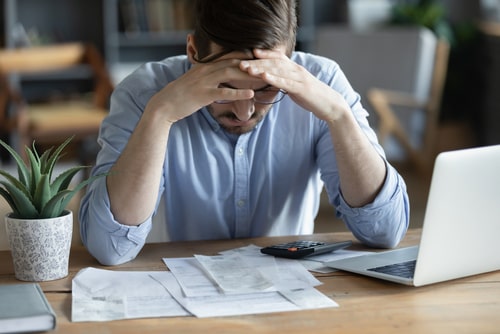 When faced with overwhelming debt, bankruptcy can allow you to breathe again financially. However, it is crucial to understand the impact bankruptcy can have on your tax obligations. A Texas lawyer can help you determine how different types of bankruptcy affect your taxes and what you need to know to navigate the process effectively.
When faced with overwhelming debt, bankruptcy can allow you to breathe again financially. However, it is crucial to understand the impact bankruptcy can have on your tax obligations. A Texas lawyer can help you determine how different types of bankruptcy affect your taxes and what you need to know to navigate the process effectively.
The Basics of Bankruptcy and Taxes
Bankruptcy is a legal process designed to help individuals and businesses eliminate or restructure their debts. The two most common types of bankruptcy in Texas are Chapter 7 and Chapter 13. While bankruptcy can relieve many debts, it is important to note that it does not automatically eliminate all tax obligations.
Chapter 7 Bankruptcy and Tax Debts
Chapter 7 bankruptcy, or liquidation bankruptcy, can discharge certain types of tax debts. To be eligible for discharge, the tax debt must meet specific criteria:
Child Support and Alimony in Bankruptcy Cases in Texas
 When facing debt, the option of filing for bankruptcy can provide relief and a new beginning. However, for those with child support or alimony obligations, the process becomes more complex. These financial responsibilities are treated differently in bankruptcy cases, and a Texas lawyer can help you determine the specifics of your situation.
When facing debt, the option of filing for bankruptcy can provide relief and a new beginning. However, for those with child support or alimony obligations, the process becomes more complex. These financial responsibilities are treated differently in bankruptcy cases, and a Texas lawyer can help you determine the specifics of your situation.
Child Support is a Non-Dischargeable Debt
One of the fundamental principles of bankruptcy law is the discharge of eligible debts. However, child support obligations are explicitly excluded from discharge under both Chapter 7 and Chapter 13 bankruptcy. This means that even after completing the bankruptcy process, the debtor remains legally responsible for paying any outstanding child support arrears or future payments.
Bankruptcy and Co-signed and Joint Debts in Texas
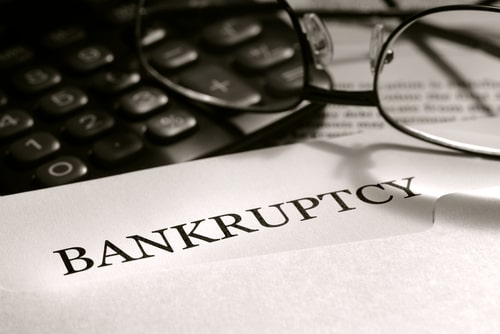 When a person files for bankruptcy in Texas, it can have significant implications for their co-signed and joint debts. Understanding how these types of debts are handled in the bankruptcy process is crucial for anyone considering filing. A Texas lawyer can help you consider different factors around co-signed and joint debts for your specific bankruptcy case.
When a person files for bankruptcy in Texas, it can have significant implications for their co-signed and joint debts. Understanding how these types of debts are handled in the bankruptcy process is crucial for anyone considering filing. A Texas lawyer can help you consider different factors around co-signed and joint debts for your specific bankruptcy case.
Co-Signed Debts in Texas Bankruptcy
A co-signed debt is one where two or more people are equally responsible for repaying the obligation. This is a common scenario when a family member or friend co-signs on a loan or credit card for someone who may not qualify on their own. In a Texas bankruptcy, the co-signer is still obligated to pay the full amount of the co-signed debt, even if the primary borrower receives a bankruptcy discharge.
The primary borrower's bankruptcy filing does not eliminate the co-signer's responsibility. This means the co-signer's credit score and assets remain at risk if the primary borrower cannot make payments. However, there is an important protection for co-signers in Texas. The bankruptcy automatic stay prohibits creditors from trying to collect the debt directly from the co-signer while the primary borrower's case is ongoing. This temporary protection gives the co-signer some breathing room, but it is crucial to understand it ends once the bankruptcy is complete.
Understanding the Automatic Stay in Bankruptcy in Texas
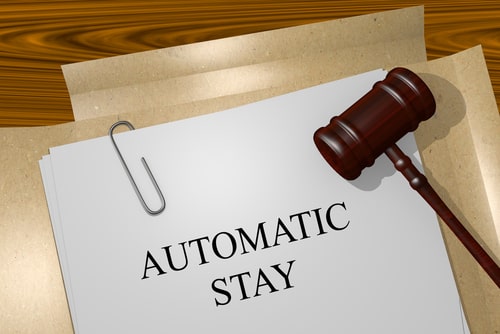 Filing for bankruptcy provides immediate relief through the automatic stay provision. However, this powerful tool has certain limitations that you should understand. A Texas lawyer can explain the automatic stay, what it covers, and where its protections end.
Filing for bankruptcy provides immediate relief through the automatic stay provision. However, this powerful tool has certain limitations that you should understand. A Texas lawyer can explain the automatic stay, what it covers, and where its protections end.
What is the Automatic Stay?
The automatic stay is one of the core protections triggered as soon as a bankruptcy case commences. It serves as an automatic injunction, prohibiting most creditors from taking any further collection actions against you or your property.
The stay automatically arises by federal law operation upon filing a bankruptcy petition. It applies to all bankruptcy chapters—Chapters 7, 11, 12, and 13. No court order is required.
The Primary Benefits of the Stay
The automatic stay delivers crucial breathing room by stopping creditor harassment and providing the debtor with a temporary reprieve from collection efforts. Specifically, it stops:
Secured vs. Unsecured Debt: What to Know in Texas
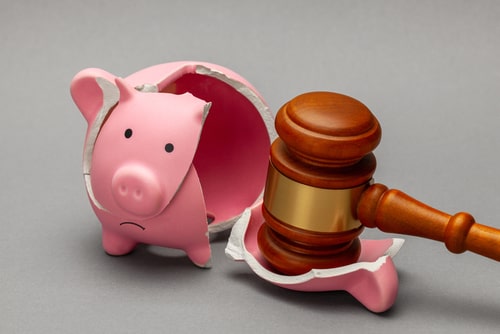 When considering bankruptcy in Texas, it is essential to understand the difference between secured and unsecured debt. These two types of debt are treated differently under bankruptcy law, and knowing how they are handled can help you make informed decisions about your financial future. A Texas lawyer can help you understand the best option for you.
When considering bankruptcy in Texas, it is essential to understand the difference between secured and unsecured debt. These two types of debt are treated differently under bankruptcy law, and knowing how they are handled can help you make informed decisions about your financial future. A Texas lawyer can help you understand the best option for you.
What is Secured Debt?
Secured debt is debt backed by collateral, such as a house or a car. When you take out a secured loan, you agree to give the lender the right to take possession of the collateral if you fail to make payments as agreed. Common examples of secured debt include mortgages and car loans.
In Texas, if you file for bankruptcy and have secured debt, you generally have two options: reaffirm the debt or surrender the collateral. Reaffirming the debt means that you agree to continue making payments on the loan, and in exchange, you get to keep the collateral. If you surrender the collateral, the lender can take possession of it, but you will no longer be responsible for the debt.
Bankruptcy Options with Student Loans in Texas
 Struggling with student loan debt can be an overwhelming and stressful experience for many Texans. While it is widely known that discharging student loans through bankruptcy is challenging, it is essential to understand that it is not entirely impossible. A Texas lawyer can help provide valuable insights and explore the various options available to seek potential relief from your student loan obligations.
Struggling with student loan debt can be an overwhelming and stressful experience for many Texans. While it is widely known that discharging student loans through bankruptcy is challenging, it is essential to understand that it is not entirely impossible. A Texas lawyer can help provide valuable insights and explore the various options available to seek potential relief from your student loan obligations.
The Brunner Test: Proving Undue Hardship
To discharge student loans through bankruptcy in Texas, you must demonstrate that repaying the loans would cause “undue hardship.” The courts use the Brunner test to determine whether a borrower meets this criterion. To pass the Brunner test, you must show that:
- If you have to pay back the loans, you will not be able to cover basic living costs for yourself and your dependents.
- Your current financial situation will likely persist for a significant portion of the repayment period.
How to Improve Your Life After Bankruptcy in Texas
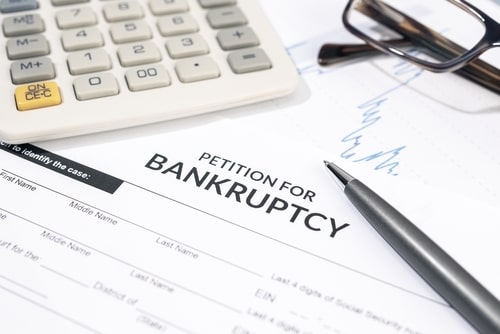 Declaring bankruptcy gives you a chance to start over financially. However, it can also bring money struggles as you reestablish credit and financial health. Although bankruptcy comes with legal limits, with the right help from a Texas lawyer, your life after filing can actually get better in the long run.
Declaring bankruptcy gives you a chance to start over financially. However, it can also bring money struggles as you reestablish credit and financial health. Although bankruptcy comes with legal limits, with the right help from a Texas lawyer, your life after filing can actually get better in the long run.
Review the Impact on Your Credit
Understand that bankruptcy devastates your credit score initially. However, well-managed credit after bankruptcy rebounds quicker than many realize. Generally, a Chapter 7 bankruptcy remains on your credit report for ten years. However, credit scoring models differentiate older bankruptcies from new ones; for example, a 3-year-old Chapter 7 hurts much less than a recent filing. Checking your actual credit reports reveals what potential lenders view. Monitoring progress monthly shows how each successful payment and healthy financial choice improves your access to new credit.
What Medical Bills Can You Get Rid of With Bankruptcy?
 Filing for bankruptcy can provide much-needed relief if you are overwhelmed by medical debt. Under Texas bankruptcy law, most types of medical debt can potentially be discharged through bankruptcy. However, you will want to understand which medical bills may still remain your responsibility after bankruptcy. A Texas lawyer can help you determine how different medical debts may be treated during bankruptcy.
Filing for bankruptcy can provide much-needed relief if you are overwhelmed by medical debt. Under Texas bankruptcy law, most types of medical debt can potentially be discharged through bankruptcy. However, you will want to understand which medical bills may still remain your responsibility after bankruptcy. A Texas lawyer can help you determine how different medical debts may be treated during bankruptcy.
Medical Debt from Doctors, Clinics, and Hospitals
Most medical debt owed directly to healthcare providers like hospitals, doctors’ offices, and medical clinics is unsecured under Texas law. Unsecured medical debts for treatment you have already received can usually be discharged entirely through Chapter 7 or Chapter 13 bankruptcy. This includes bills from:






